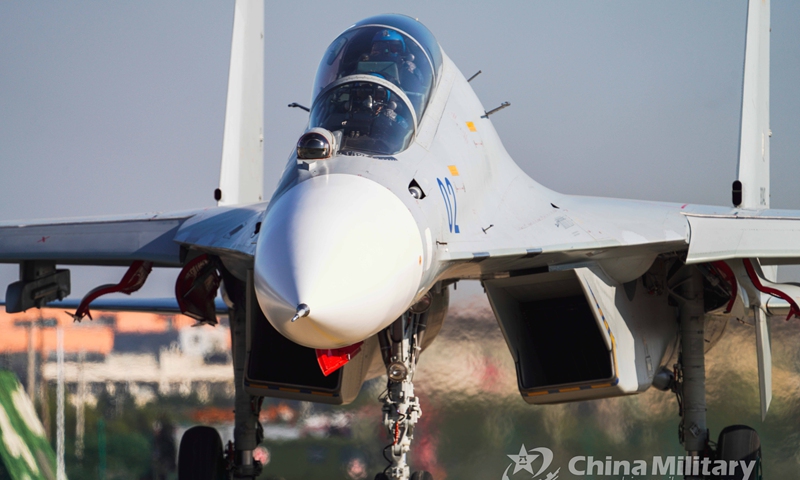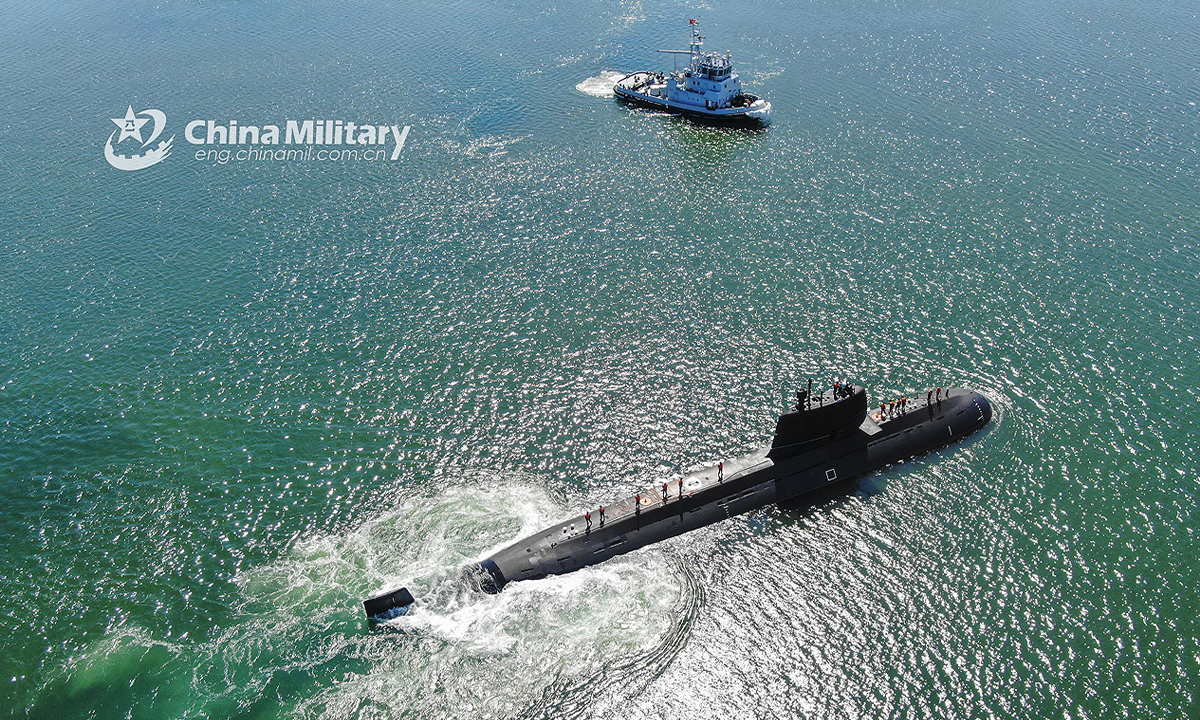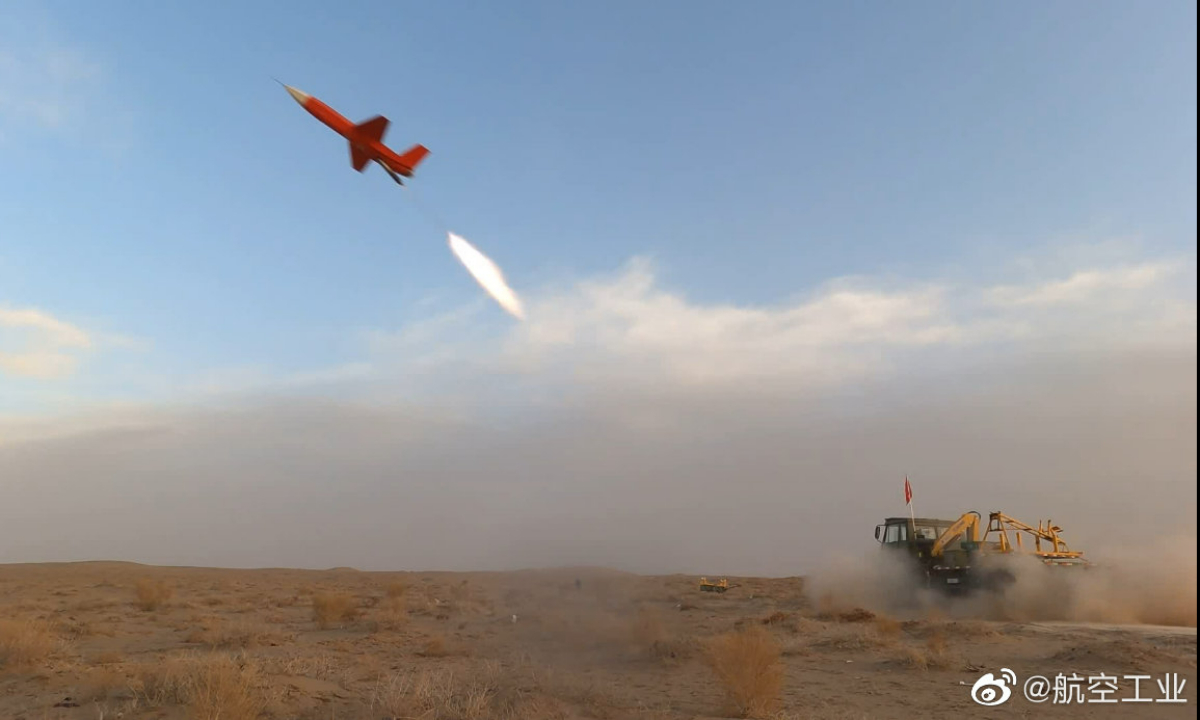Xinhua file photo of a B-52 strategic bomber
After a series of failures, the US Air Force on Monday announced that it has finally succeeded in the test launch of its air-launched hypersonic missile, a technology China has long mastered and even put on public display at a recent air show. The US’ scheme is to use the hypersonic missile and the recently revealed B-21 stealth bomber to penetrate China’s air defense, but the Chinese People’s Liberation Army (PLA) has what it takes to defend the country, experts said on Tuesday. A full prototype of the Air-launched Rapid Response Weapon, also known as the AGM-183A missile, was launched from a B-52 bomber off the coast of California on Friday, and all of the objectives of the test were met, CNN reported on Monday, citing a statement from the US Air Force. The AGM-183A is a boost-glide missile that uses a booster rocket to accelerate a projectile to hypersonic speeds, before a glide vehicle separates from the booster and uses inertia to travel to its target, CNN said. The successful test launch of the missile came after a series of failures in testing last year, forcing the Air Force to delay the project at a time when China and Russia have shown advances in their own programs, CNN reported. During the Airshow China 2022 held in Zhuhai, South China’s Guangdong Province in November, the PLA Air Force put on display an H-6K bomber which carried a type of missile widely believed to be hypersonic. China also displayed the DF-17 hypersonic boost-glide missile at the National Day military parade on October 1, 2019 in Beijing. Russia’s Kinzhal hypersonic air-launched ballistic missile has also been reportedly deployed in combat in the Ukraine crisis. With China and Russia taking the lead in hypersonic weapons development, the US is hurrying to build ones of its own, with the rush felt in several previous failures, a Chinese military expert who requested anonymity told the Global Times on Tuesday. Compared with its Chinese and Russian counterparts, as well as air-breathing hypersonic missiles, the AGM-183A should not be considered very advanced, the expert said. On December 2, the US Air Force’s next-generation stealth bomber, the B-21, made its public debut.. The US wants to use the low-end B-52 bomber which cannot penetrate air defense on its own to carry the strongly penetrative, standoff AGM-183A hypersonic missile, and use the high-end B-21 stealth bomber to drop inexpensive munitions within the opponent’s defense lines, Zhang Xuefeng, another Chinese military expert, told the Global Times. Chinese military aviation expert Fu Qianshao told the Global Times that the AGM-183A can be intercepted before it is launched from the B-52, which is a large and slow target that can never be stealth.
Another option, which can also counter the B-21, is to attack bases and airfields where the bombers are deployed, Fu said.
RELATED ARTICLES
China launched a solid-fuel rocket from mobile sea platform
https://spacenews.com/china-
China recently carried out the maiden flight for a type of new high-altitude, high-speed demonstrator drone, which can ...
HELSINKI — China launched its new Jielong-3 rocket from a mobile sea platform in the Yellow Sea Friday, successfully sending 14 satellites into orbit. The Jielong-3 (“Smart Dragon-3”) lifted off at 1:35 a.m. Eastern (0635 UTC) Dec. 9, from the Tai Rui modified barge off in the Yellow Sea.











No comments:
Post a Comment